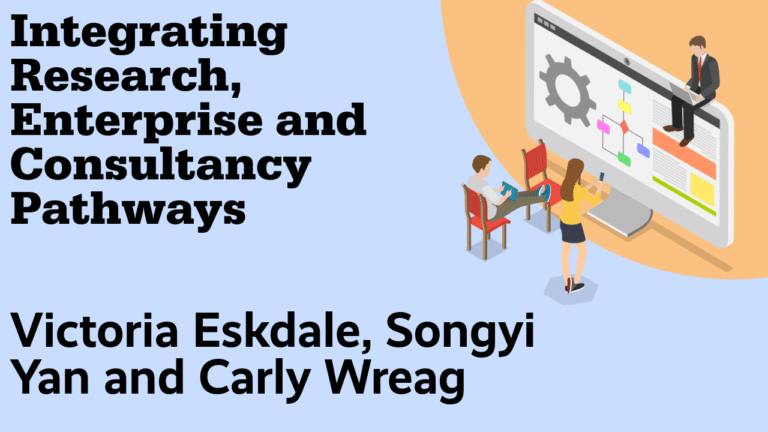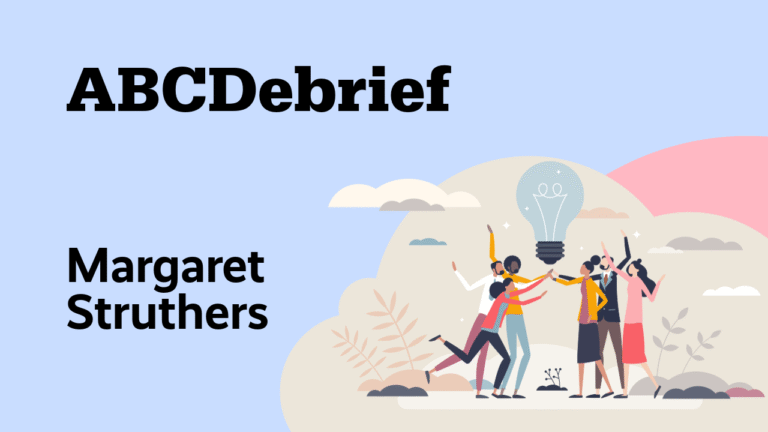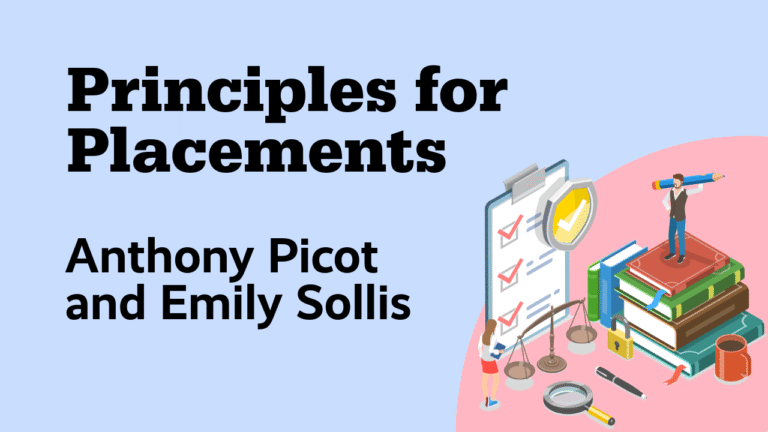STRIVE: A Transformational Programme of Enhanced Employability Support and Opportunity for Minoritised Groups of Students
Iwi Ugiagbe-Green – Professor (Equity in Education) | National Teaching Fellow (2025) | Academic Director Strategic Lead (differential outcomes) PFHEA
This submission relates to our transformational programme of enhanced support and opportunity for minoritised groups of students at Manchester Metropolitan University. The programme enriches the lives and outcomes of so called ‘hard to reach,’ socially disadvantaged student groups,’ through inclusive targeting and co-creation of brave spaces in which students develop their strengths, confidence, self-efficacy and better understand themselves and what they want to achieve. The programme develops their life-long and life skills through engagement in brave spaces where failure is a stepping stone to success and diversity is celebrated as a strength, not a strategic issue to be fixed.
At Manchester Metropolitan University, students are awarded RISE points in recognition of the experiential learning they gain through undertaking RISE activities, which they are able (in some cases) to convert into academic credit to enhance their final degree award.
STRIVE is a transformative six-month hybrid programme of enhanced opportunity to enhance the student success of Black, Asian and minority ethnic students (‘BAME’, a problematic grouping of people who are racially minoritised), with intersecting characteristics. The innovative STRIVE programme is research-informed and constructively aligned using the work-readiness framework created by Will Southall (then a student at University of Leeds) and Dr Iwi Ugiagbe-Green. The work-readiness capitals framework was first launched at our keynote address at the AGCAS annual conference in 2019 (by invitation of Stephen Isherwood). As such, the STRIVE programme frames employability as work-readiness; a relatively new construct, defined as, “the level to which graduate students are perceived as possessing attitudes and attributes that enable them to be prepared for success in the workforce” (Doe, 2015, p.10). Consequently, STRIVE develops the human (skills & knowledge evidenced by award), social (personal and professional relationships and networks), employment (occupational behaviours, judgements and moral orientations), cultural (objectified/embodied professionalism), economic (ability to bear financial risks) and identity capital (psychosocial skills demonstrated by self-reflexive understanding of positioning in labour market) of students undertaking the programme. In doing so, the programme develops life-long and life-wide skills e.g. self-efficacy, values, strengths, character, critical thinking, team working skills, play, accountability, communication.
In its first year (2023/24), 106 students completed the STRIVE programme, 56 students were mentored, and to date, 28 undergraduate students are currently eligible to claim 300 RISE points and an additional 30 academic credits. Our STRIVE student team (comprising of Black & Asian students) came 3rd (out of 20 universities) in the prestigious national Microsoft EDI 2023/24 competition.
STRIVE has created 11 paid student internships, 6 ambassador roles, 8 graduate intern posts (via Future Graduate Talent schemes and Q Step schemes) and 1 fixed term one-year contract post. Of these posts, 89% were accessed by ‘BAME’ students/graduates at our university, enhancing their graduate prospects. The programme also paid for 8 students to attend an insight day with N Brown and 7 students supported the high-profile launch of Cool Rivers at Wembley Stadium.
Inclusive employability related activities were embedded the programme for everyone to access. The STRIVE team worked closely with Nicholas Alogba, Sheri Lawal, Charlie Hague, Sarah Reith and other valued members of Careers and Employability Services at Manchester Metropolitan University to create these enhanced opportunities.
The employability related activities included;
(1) Telling stories series – Relatable role model sessions with ‘BAME’ Senior leaders who explained how they navigated professional spaces to overcome barriers and become successful e.g. Khurram Hussain, a senior partner (Warren Partners), Asma Iqbal (winner of two British Muslim Awards and Partner at Chadwick Lawrence), Sonya Barlow (BBC Presenter), Dr Maisha Islam (Doctoral College Culture Lead), Anton Lewis (Associate Professor)
(2) Mentorship – 38 mentors from a wide range of professional services e.g. Deloitte, Wells Fargo Bank. We also had mentors from industry e.g. The Educate Group, ATOS, L’Oréal and public services. The remaining 18 mentors were sourced from Manchester Metropolitan University.
(3) Well-being sessions were delivered by charity called Hope CIC, who also provided 2 paid internships for students, funded through our institution small employer engagement grant offered by Manchester Metropolitan University
(4) Virtual internships – Business simulations In Science and Engineering, Business and Management, Health and Education and Law were profiled into a portfolio of opportunities for students to engage with, complete and receive feedback. Students also received a certificate of completion and access to the respective business’ Linkedin page.
(5) Sessions on CV writing, interview tips, Linkedin and professional profiling were delivered by Alumni, ATOS and members of our Careers and Employability team.
Analysis of STRIVE 100 (2023/24) using our institutional ‘Evaluation of Education Excellence’ (EvEE) tool reports enhanced opportunity equity for ‘hard to reach’ students; engagement with STRIVE is 52pp higher than expected for ‘BAME’ students and 30pp for students from ‘more deprived neighbourhoods.’ EvEE also reported major impact on the lead indicator of unit performance (therefore enhancing human capital). There is a reported unit performance increase of 19pp for ‘BAME’, 22.7pp for Asian and 34.8pp for first generation students. STRIVE has a statistically significant major (the highest level) impact on the academic development of ‘BAME’ students (with the biggest impact for Asian, male and vocational students).
As well as all the in-programme employment opportunities, participation in the programme has led to employment opportunities through the development of the work-readiness of the STRIVERS. 4 students have secured summer internships with BNY Mellon (who are one of new mentors on our expanded 2024/25 STRIVE programme), 3 students have secured paid part time roles relevant to their area of study and one student has secured a graduate role as a senior researcher. Importantly, students have shared with us their inspiring stories of self-development and 100% of students suggested that they would recommend STRIVE to other students.
STRIVE has now expanded in 2024/25 and is supporting 256 students across foundation, undergraduate and postgraduate levels. 201 students are being mentored, and we are excited to see the impact of this growing programme on our diverse student community at Manchester Metropolitan University


